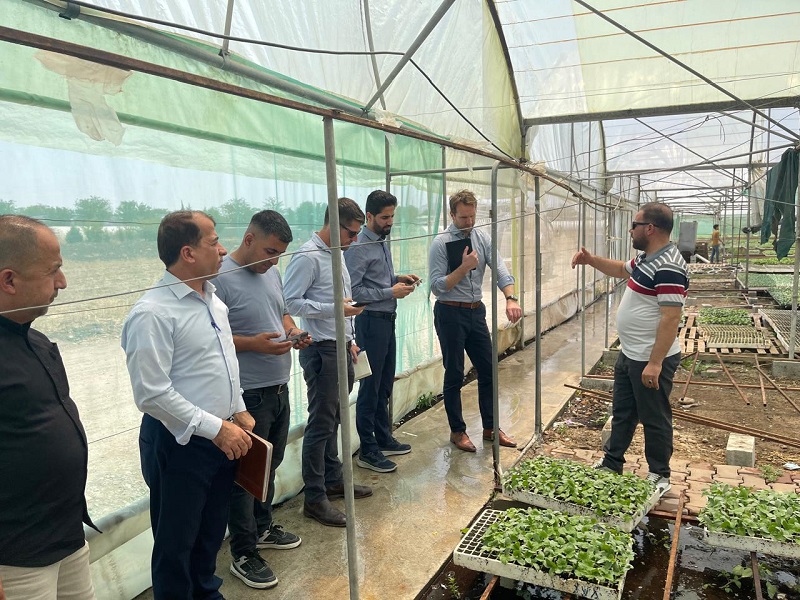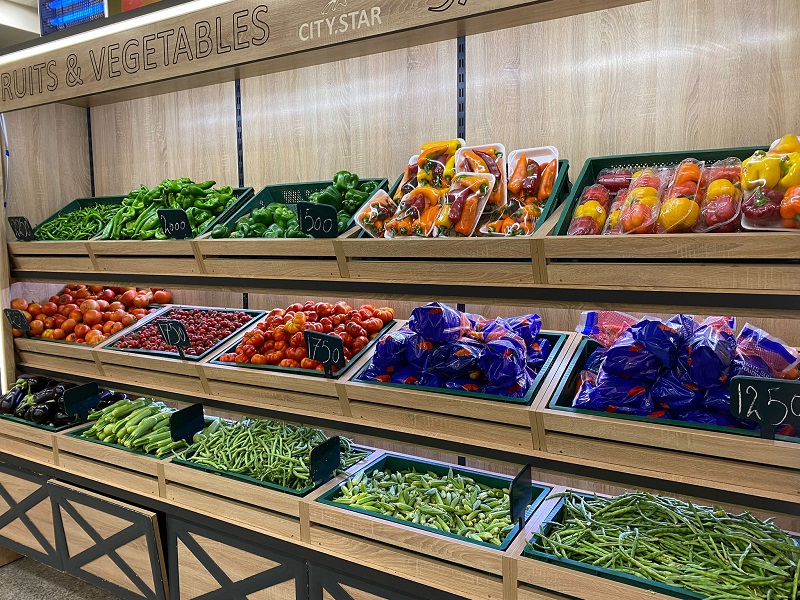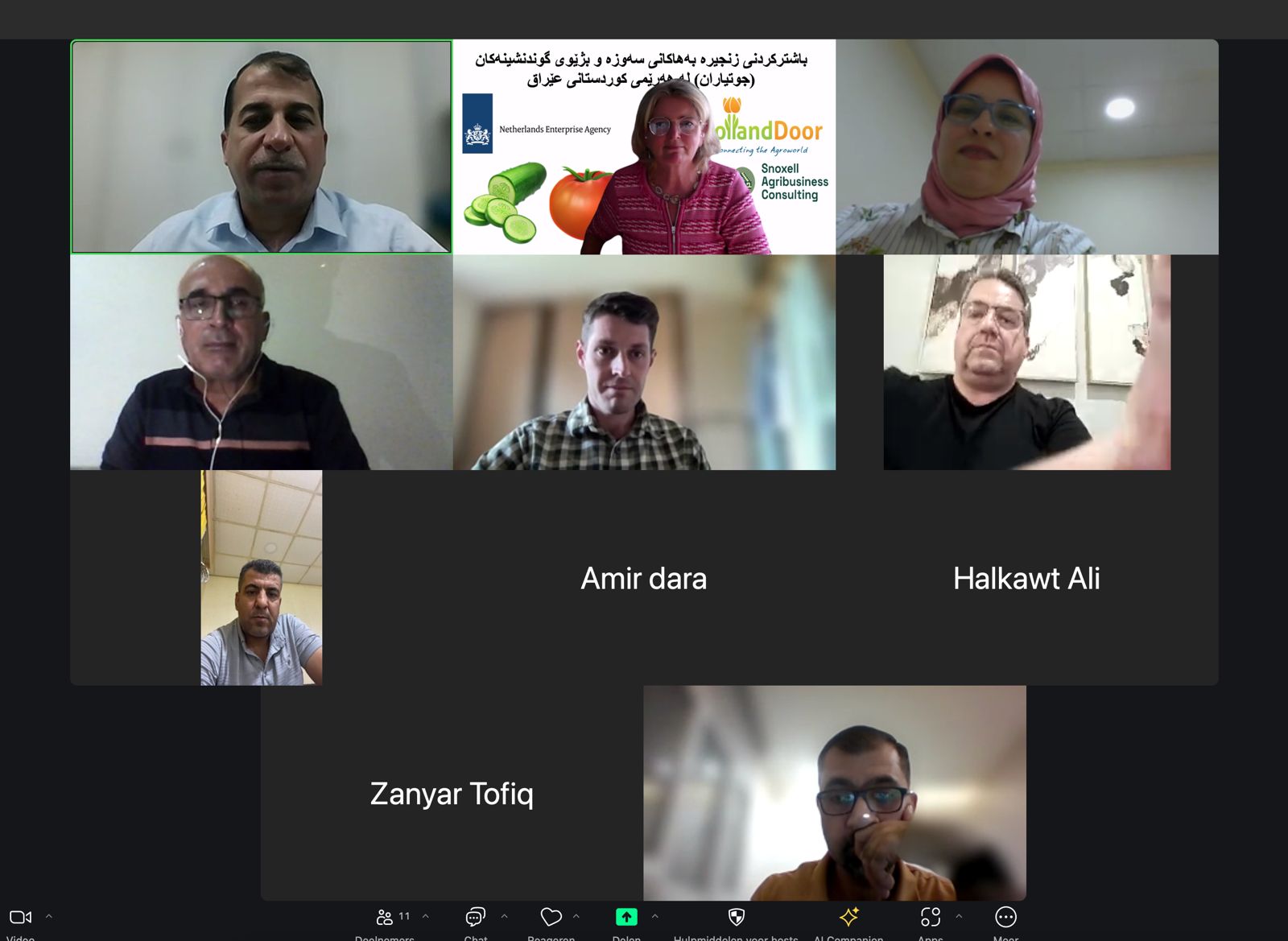The protected horticulture sector in Sulaymaniyah Governorate, in the Kurdistan region of Iraq, has expanded significantly over the past 15 years. Since 2007, the Bazian Valley has transformed from having no greenhouses to hosting an estimated 12,000 to 14,000 plastic tunnel houses by 2024. This increase has been largely driven by the demand for cucumbers in Federal Iraq. This development has generated employment and opportunities to substitute imported products.
Despite the growth in protected structures, the value chain beyond the farm gate faces several challenges. Important issues include high price volatility, lack of proper grading, packaging, transportation and cold chain logistics, mistrust in food safety, and partnership reliability. Addressing these issues is essential to strengthen the value chain, and collaboration between farmers and other value chain stakeholders is crucial for its success.
To tackle these challenges, the Consul General of the Netherlands in Erbil and the Dutch Enterprise Agency commissioned HollandDoor Cooperative, in partnership with its Erbil-based partner Snoxell Agribusiness Consulting, to carry out a value chain analysis and needs assessment in Sulaymaniyah. This assessment involved desk research, over 45 interviews with local stakeholders, a participatory workshop in August, and an online workshop in September. The outcome was a detailed needs analysis and the design of a program that aims to improve profitability, reduce food waste, and ensure food safety.
The findings and proposed program will serve as a foundation for further action by the Dutch Enterprise Agency and the Consul General of the Kingdom of the Netherlands in Erbil. The project is expected to help the horticulture sector overcome significant bottlenecks, enhancing the entire value chain.
For more information, please contact Engelie Beenen
Joomla Extensions






